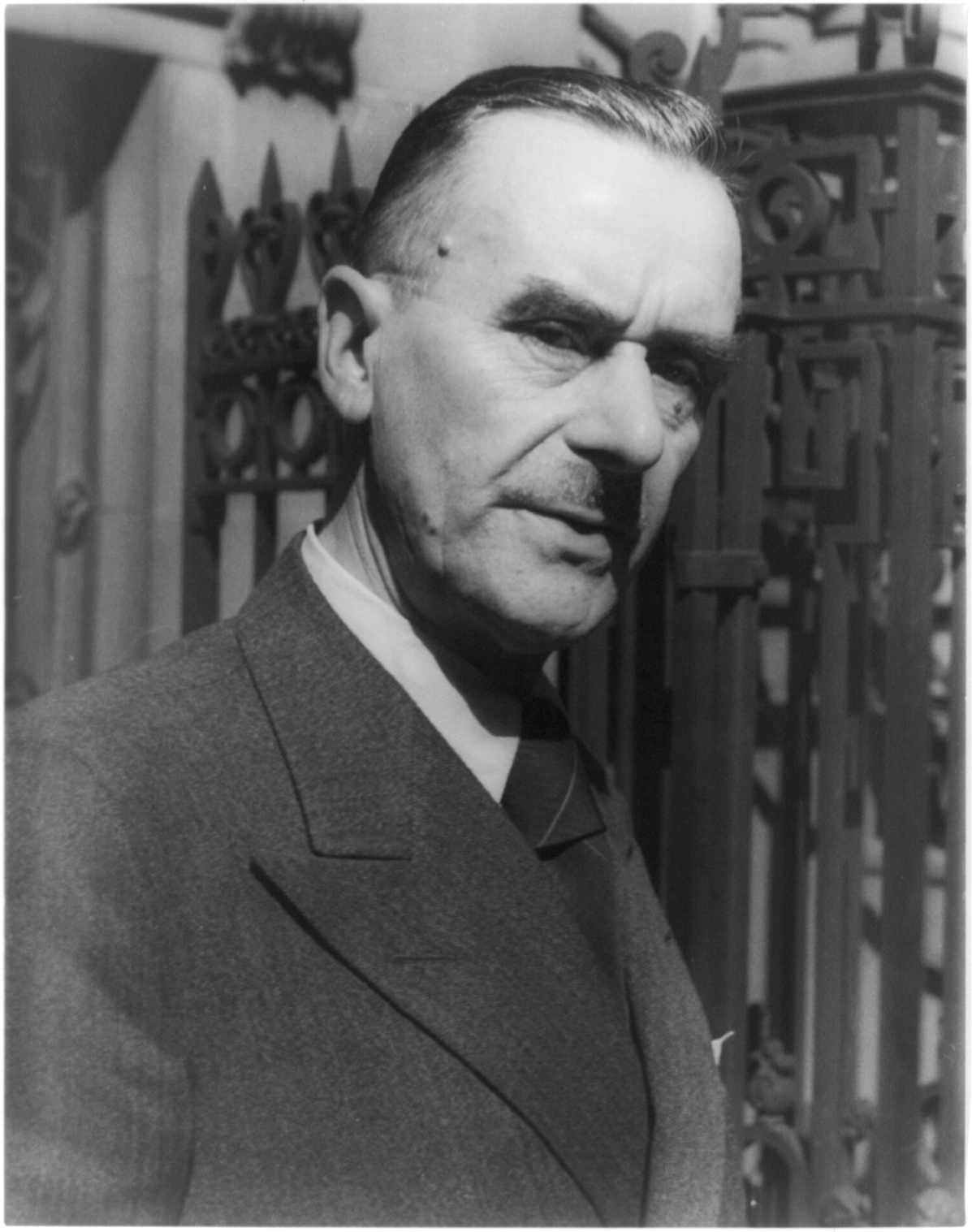Death in Venice
Frases célebres de Thomas Mann
“La tolerancia es un crimen cuando lo que se tolera es la maldad.”
Fuente: María V. C. Frases inspiradoras: Lo único imposible es aquello que no intentas. Editorial Grupo Fénix CR, 2017. p. 83.
“Pensad como hombres de acción, actuad como hombres pensantes.”
Fuente: Herrera Carles, Humberto. 1500 Frases, pensamientos para la vida. Editor Lulu.com. ISBN 9781105216565. p. 47.
“La guerra es la salida más cobarde de los problemas de la paz.”
Fuente: Citado en Martín Pascual, Gerardo. En el corazón de otros tiempos. Editorial Visión Libros. ISBN 9788499832821. p. 181.
Frases de hombres de Thomas Mann
Los orígenes del «Doktor Faustus»
La muerte en Venecia / Mario y el mago
Frases de mundo de Thomas Mann
Confessions of Felix Krull, Confidence Man: The Early Years
“¿Por qué todo el mundo que quiere migrar o buscar un trabajo se dirige a mí?”
Los orígenes del «Doktor Faustus»
Death in Venice
Thomas Mann Frases y Citas
The Magic Mountain
Death in Venice
Variante: La soledad hace madurar lo original, lo audaz e inquietamente bello, el poema. Pero también engendra lo erróneo, desproporcionado, absurdo e ilícito.
La montaña mágica
La montaña mágica
“El que nace para ser ahorcado nunca morirá ahogado.”
Fuente: Ortega Blake, Arturo. El gran libro de las frases célebres. Editorial Penguin Random House Grupo Editorial México, 2013 ISBN 978-60-7311-631-2.
Fuente: Citado en Zuleta, Estanislao. Thomas Mann, La montaña mágica y la llanura prosaica. 2ª Edición. Hombre Nuevo Editores, 2003. p. 309.
“La belleza, como el dolor, hace sufrir.”
Fuente: Israel, Ricardo. El libro de las verdades. Citas citables. Editorial RIL Editores, 2011. p. 12.
“El escritor es aquel al que escribir le resulta más difícil que a las demás personas.”
Fuente: Citado en Marina, José Antonio. La magia de escribir. Editorial Penguin Random House Grupo Editorial España, 2010. ISBN 9788401390456.
Fuente: Citado en Becerra, David. La Guerra Civil como moda literaria. Editorial Clave Intelectual, 2016. ISBN 9788494528149. p. 1897.
Fuente: Domenico Losurdo en Stalin: historia y crítica de una leyenda negra, p. 17.
Confesiones del estafador Félix Krull
“la palabra es enemiga de lo misterioso y cruel delatora de lo vulgar.”
Confesiones del estafador Félix Krull
La muerte en venecia/Las tablas de la ley
La montaña mágica
Death in Venice
“Quien toma en serio a Nietzsche, quien lo toma al pie de la letra y le cree, está perdido.”
Fuente: Citado en Sebreli, Juan José. El olvido de la razón. Editorial Penguin Random House Grupo Editorial Argentina, 2011. ISBN 9789500734769.
Thomas Mann: Frases en inglés
“Disease was a perverse, a dissolute form of life.”
Fuente: The Magic Mountain (1924), Ch. 5
Essays, ed. by H.Kurzke, Frankfurt 1986, vol. 2, p. 311
Was wir Trauer nennen, ist vielleicht nicht sowohl der Schmerz über die Unmöglichkeit, unsere Toten ins Leben kehren zu sehen, als darüber, dies gar nicht wünschen zu können.
http://books.google.com/books?id=q4UdAAAAMAAJ&q=%22was+wir+Trauer+nennen+ist+vielleicht+nicht+sowohl+der+Schmerz+%C3%BCber+die+Unm%C3%B6glichkeit+unsere+Toten+ins+Leben+kehren+zu+sehen+als+dar%C3%BCber+dies+gar+nicht+w%C3%BCnschen+zu+k%C3%B6nnen%22&pg=PA562#v=onepage
Fuente: The Magic Mountain (1924), Ch. 7
Fuente: The Beloved Returns (1939), Ch. 7
As quoted in The New York Times (18 June 1950); also in Thomas Mann: A Critical Study (1971) by R. J. Hollingdale, Ch. 2
“A black pall, you know, with a silver cross on it, or R. I. P.”
requiescat in pace — you know. That seems to me the most beautiful expression — I like it much better than ‘He is a jolly good fellow,’ which is simply rowdy.
Fuente: The Magic Mountain (1924), Ch. 5
but I do not envy them. For if anything is capable of making a poet out of a man of letters, it is this plebeian love of mine for the human, living, and commonplace. All warmth, all goodness, all humor is born of it, and it almost seems to me as if it were that love itself, of which it is written that a man might speak with the tongues of men and of angels, and yet without it be no more than sounding brass or a tinkling cymbal.
Fuente: Tonio Kröger (1903), Ch. 9, as translated by Bayard Quincy Morgan
“It is as though something had begun to slip – as though I haven’t the firm grip I had on events.”
What is success? It is an inner, an indescribable force, resourcefulness, power of vision; a consciousness that I am, by my mere existence, exerting pressure on the movement of life about me. It is my belief in the adaptability of life to my own ends. Fortune and success lie within ourselves. We must hold them firmly – deep within us. For as soon as something begins to slip, to relax, to get tired, within us, then everything without us will rebel and struggle to withdraw from our influence. One thing follows another, blow after blow – and the man is finished.
Buddenbrooks [Buddenbrooks: Verfall einer Familie, Roman] (1901). Pt 7, Ch. 6
